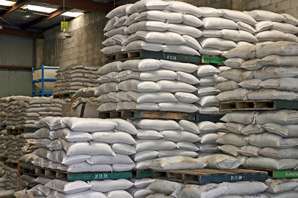
Dispatcher Job Description Example
What Does a Dispatcher Do?
The role of a dispatcher is a very important position in the transport or hauling industry. He/she is like the fulcrum or the communication point between the customer and the driver or company.
The dispatcher job description entails receiving orders from customers or the manager and making necessary arrangement for the driver and vehicle to convey the freight to the supposed destination.
It is equally his or her responsibility to chart the route to be taken by the driver and ensure that they adhere to the predetermined route.
The dispatcher must be able to track the movement of truck and report appropriately to the manager and clients.
All these require in-depth knowledge of routes within the regions or the states in which they operate, map reading skill and ability to track vehicles using GPRS, vehicle tracker and other such devices.
He must ensure that freights are safely loaded and documented before dispatch.
To fit in well in this position, he must be excellent at communication, emotionally mature and must be able to work under pressure.
Excellent planning skill, good sense of judgment, and ability to prioritize effectively is also very essential.
The dispatcher must have excellent interpersonal skills, and should also be able to maintain good relationship with customers, drivers and co-workers to be effective in carrying out the work description of the position.
Dispatcher Job Description Example
Working as a dispatcher involves performing various duties, tasks, and responsibilities on daily basis.
Here is a dispatcher job description example showing the major functions of the role, which most companies will expect you to perform if employed.
- Receive orders for shipment, or pick from customers or senior managers
- Make necessary arrangement for the appropriate driver and vehicle to be employed for each run
- Keep track of the movement and progress of each driver and vehicle
- Receive complain about driver, vehicle, and goods in transit
- Receive report about vehicle or freight damage, accident and emergency situations
- Ensure that damaged vehicles are repaired and restored to working state
- Ensure that damaged freight replaced for customers when need be
- Relay reports and work orders to the supervisor
- Chart routes to be taken by drivers and ensure compliance to the predetermined routes
- Modify predetermined routes when the need arises
- Ensure timely dispatch of freights
- Negotiate rates with customers
- Inspect inbound freight to ensure compliance in quality and quantity of goods received with the description on the bill of laden
- Take inventory to ascertain the stock of goods remaining
- Answer customers’ queries regarding the availability of trucks and the cost of haulage
- Prioritize haulage according to urgency and nature of commodity
- Arrange for emergency pickup and delivery of orders
- Maintain a friendly relationship with customers to ensure continuous patronage
- Maintain a friendly relationship with drivers to ensure steady compliance whenever they are called for work even in emergency situations
- Maintain a dispatch log to record all details of pickup and delivery orders – customers’ orders, drivers’ information, haulage charge, expenses incurred in hauling each freight, and inventory
- Plan pickup and delivery of orders in such a way as to minimize cost. Two or more orders can be attended to with one vehicle if they all involve plying same route and can be handled by one vehicle
- Determine the best shipping method for each kind of good.
Requirements – Skills, Knowledge, Abilities – for the Dispatcher Role
To be a top performer on the job, dispatchers should strive to develop the following skills and qualities, which are also part of the major requirements of employers when hiring for the post:
- Communication: He/she must have excellent listening and communication skills. Being able to listen attentively to customers’ orders and pass same information across to drivers is imperative to the success of deliveries. The dispatcher must also be able to sustain an open line of communication with the parties involved in the run – customer, manager, and driver
- Dispatching involves a lot of work at the same time – receiving calls from different drivers, customers, and managers; tracking the drivers’ progress, and arranging for dispatches. Therefore, the dispatcher must be able to multitask and prioritize effectively without making mistakes
- Good map reading skills and ability to use GPRS devices to chart routes for the movement of the drivers is very important. In addition, an expansive knowledge of routes plied by the drivers is also essential
- The dispatcher must be able to work in high pressure environment
- He/she must be willing to work flexible schedules including working on weekends, holidays, and over time to meet the demands of clients
- He/she must exhibit a high level of emotional maturity and calmness to handle the stress associated with the position well
- Experience in a leadership position is very essential so as to be able to coordinate the drivers under his/her supervision
- He/she must be educated at least to the level of high school diploma to be able to accurately deal with the paper work involved in the position. In addition, he/she may be required to be a computer literate if his/her position involves the use of computer software for scheduling and monitoring of vehicles/drivers
- Pre-employment tests: When recruiting for this position, some employers may require applicants to take a test or two. Find out about dispatcher job assessment tests and how to make top scores in them.












